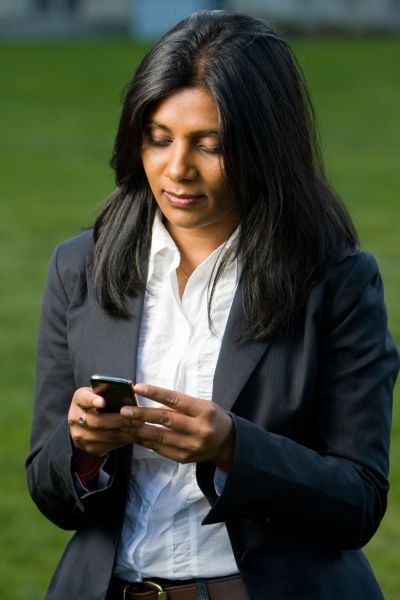The World Congress Summit on mHealth took place in Boston and according to the techie site Computerworld a panel at the Summit focused on the importance of linking texting to mHealth strategy.
On July 30, Julie Kling, the mobile executive business lead at healthcare provider Humana, joined a panel and said, "Health-care providers looking to implement a mobile strategy need to understand the strong bond people have with their smartphones.
"There is nothing more personal than a mobile phone. The phone is a personal tool and you need to use it in that way."
However in the US, healthcare providers are not legally allowed to send personalized texts to clients based on patients' privacy laws and that also applies to those that have downloaded Humana's free iPhone application MyHumana Mobile.
Kling explained that, for example, a "generic message that reminds the customer that breast cancer awareness month is coming up" is acceptable whereas sending a direct text reminding a woman of her mammogram appointment is not possible. Basically, "we have to target a person but say it in a way that pleases the privacy officer."
Robert Havasy, an analyst with Partners Healthcare System's Center for Connected Health, was involved in a study using texts "to improve care for pregnant teenagers and addicts."
"We believe that text messaging is effective. The goal was to see if this could work in a more challenging environment," added Havasy.
Essential to Havasy's program was personalization. He noted, " the message's wording proved important to the program's success. The texts began by saying they were from a specific doctor instead of using a more generic greeting."
This personalization helped the program, with 92 percent of participants reporting that they felt more connected to the health center. The SMS (short message service) system also reduced administrative tasks and "replaced phone calls that an already overburdened staff was making," he said.
Tim Kieschnick, director of the user experience in the Internet Services Group at Kaiser Permanente, said, "the Internet makes a huge difference, but the laws of economics still apply. We need to get grounded in reality. Who are the users, what do they need?"
Bud Flagstad, vice president of strategic initiatives at UnitedHealth Group, detailed how UnitedHealth's is following smartphone and social media trends to apply them to their mHealth strategy with GPS tools to find physicians nearby and encourage healthy habits like competing with friends to walk places.
The bottom line is that "applications must be useful. You want them to do more than mimic the Web portal," said Flagstad.
According to Flagstad, healthcare in the future could include using GPS tools in smartphones to notify healthcare providers that you are at a doctor's appointment and the healthcare provider can in turn submit all necessary information to your doctor.
The discussion is bound to continue at the two upcoming mHealth events taking place in September in Dubai, UAE: http://www.m-healthconference.com/393/ and in San Diego, California: http://www.mobih.org/meetings
Subscribe to Independent Premium to bookmark this article
Want to bookmark your favourite articles and stories to read or reference later? Start your Independent Premium subscription today.


Join our commenting forum
Join thought-provoking conversations, follow other Independent readers and see their replies